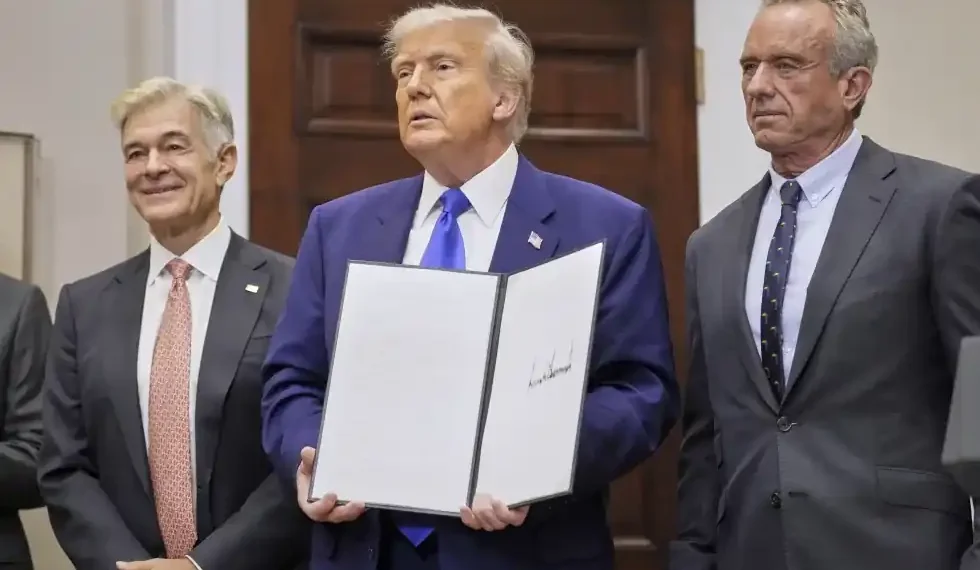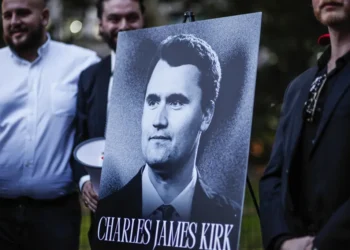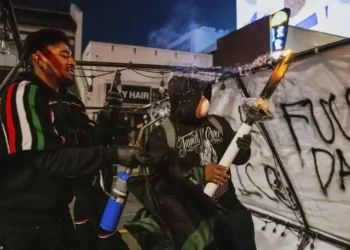Fact Check: Are Other Countries to Blame for High U.S. Drug Prices? Experts Say No
By [Your Name] | Updated June 2, 2025
At a White House event on Monday, former President Donald Trump signed an executive order aimed at lowering prescription drug prices in the U.S.—but not without making a controversial claim. According to Trump, other countries are the reason Americans pay more for their medications.
“We were subsidizing others’ healthcare,” Trump said. “They pay a small fraction for the same drug. The European Union has been brutal. But we’re not going to tolerate profiteering and price gouging anymore.”
It’s a powerful statement, but experts say the facts simply don’t support it.
THE CLAIM:
Trump argues that the U.S. is essentially “subsidizing” cheaper drug prices in countries like those in the EU by paying many times more for the same medications.
THE FACTS: It’s a U.S. System Problem, Not a Foreign One
Yes, Americans pay more for prescription drugs. In fact, much more.
A 2024 RAND Corporation report found that U.S. drug prices were, on average, 2.78 times higher than those in 33 other high-income countries. Brand-name drugs account for most of the gap. The U.S. represented a massive 62% of global drug sales—but only 24% of actual drug volume.
So why the huge difference? Experts say it’s not because other countries are exploiting the U.S., but because of how America’s fragmented pricing system works.
“There are structural differences in the way that we price drugs in the United States,” said Mariana Socal, a health policy expert at Johns Hopkins. “Those differences are what drive the price gap.”
How Drug Pricing Works in the U.S. vs. Abroad
In most countries, a single national agency negotiates drug prices on behalf of everyone. That gives them enormous leverage. In the U.S., by contrast, pricing is negotiated separately by dozens of private insurers and pharmacy benefit managers (PBMs)—a setup that weakens bargaining power and drives up costs.
“Anything that increases negotiating power—like covering more people—puts downward pressure on prices,” explained Courtney Yarbrough, a health policy professor at Emory University.
This isn’t new. It’s the reason drug companies often push higher prices in the U.S. while accepting lower profits elsewhere. A smaller margin overseas is better than no access at all.
What Does Trump’s Executive Order Actually Do?
Trump’s order sets a 30-day deadline for drugmakers to voluntarily lower prices in the U.S. If they don’t, a new “most favored nation” pricing rule would be drafted, tying U.S. drug prices to the lowest prices in similarly developed countries.
It sounds tough, but it’s unclear how much it will affect people with private insurance, since the federal government’s control mainly extends to Medicare and Medicaid.
And no—if U.S. prices drop, other countries won’t automatically start paying more. Experts say those countries may instead cut quiet deals or negotiate steeper discounts behind closed doors.
“We’re not in a static global pharmaceutical market,” Yarbrough added.
Why Drug Prices Stay High: It’s Not Just About Foreign Nations
The real story behind high drug prices in the U.S. has more to do with corporate incentives and market exclusivity. Manufacturers, PBMs, and wholesalers all benefit financially from higher list prices. Many companies also use patents strategically to delay cheaper generics from entering the market.
“There are no saints in this industry,” said Geoffrey Joyce, health policy director at USC’s Schaeffer Center. “Everyone makes more money off of higher list prices, so they keep pushing them up.”
While Trump threatened investigations into Big Pharma at the same press event, he also offered a surprisingly friendly defense of the industry—blaming other nations for their pricing tactics instead.
BOTTOM LINE:
The U.S. isn’t subsidizing other countries’ healthcare. Americans pay more for prescription drugs largely because of how the U.S. market is structured, not because of any unfair pressure from Europe or elsewhere. Trump’s executive order may aim to tackle the issue, but blaming other countries misses the mark.
This article was rewritten by JournosNews.com based on verified reporting from trusted sources. The content has been independently reviewed, fact-checked, and edited for accuracy, neutrality, tone, and global readability in accordance with Google News and AdSense standards.
All opinions, quotes, or statements from contributors, experts, or sourced organizations do not necessarily reflect the views of JournosNews.com. JournosNews.com maintains full editorial independence from any external funders, sponsors, or organizations.
Stay informed with JournosNews.com — your trusted source for verified global reporting and in-depth analysis. Follow us on Google News, BlueSky, and X for real-time updates.











